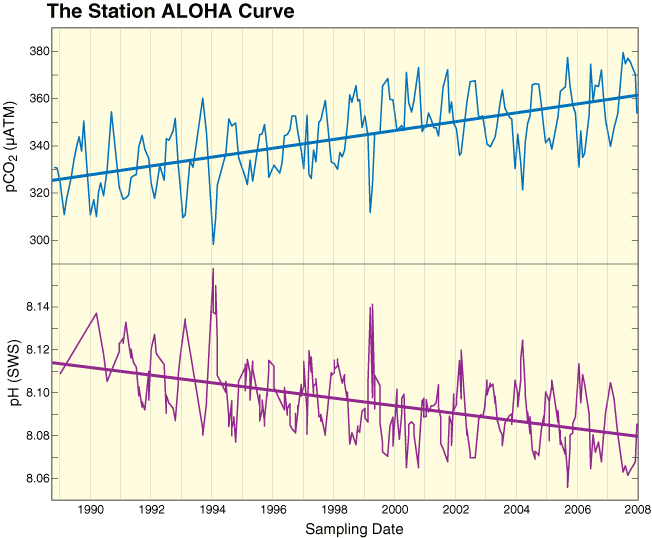Oceans reveal further impacts of climate change
By Staff Writers
Birmingham AL (SPX) Feb 05, 2010 The increasing acidity of the world’s oceans – and that acidity’s growing threat to marine species – are definitive proof that the atmospheric carbon dioxide that is causing climate change is also negatively affecting the marine environment, says world-renowned Antarctic marine biologist Jim McClintock, Ph.D., professor in the University of Alabama at Birmingham (UAB) Department of Biology. “The oceans are a sink for the carbon dioxide that is released into the atmosphere,” says McClintock, who has spent more than two decades researching the marine species off the coast of Antarctica. Carbon dioxide is absorbed by oceans, and through a chemical process hydrogen ions are released to make seawater more acidic. “Existing data points to consistently increasing oceanic acidity, and that is a direct result of increasing carbon dioxide levels in the atmosphere; it is incontrovertible,” McClintock says. “The ramifications for many of the organisms that call the water home are profound.” A substance’s level of acidity is measured by its pH value; the lower the pH value, the more acidic is the substance. McClintock says data collected since the pre-industrial age indicates the mean surface pH of the oceans has declined from 8.2 to 8.1 units with another 0.4 unit decline possible by century’s end. A single whole pH unit drop would make ocean waters 10 times more acidic, which could rob many marine organisms of their ability to produce protective shells – and tip the balance of marine food chains. “There is no existing data that I am aware of that can be used to debate the trend of increasing ocean acidification,” he says. … One study McClintock recently conducted with a team of UAB researchers revealed that the shells of post-mortem Antarctic marine invertebrates evidenced erosion and significant loss of mass within only five weeks under simulated acidic conditions. McClintock says acidification also could exert a toll on the world’s fisheries, including mollusks and crustaceans. He adds that the potential loss of such marine populations could greatly alter the oceans’ long-standing food chains and produce negative ripple effects on human industries or food supplies over time. …

Any decent blog scientist can tell this is just like those stalactites hanging over pools of water so it looks like stalagmites are underneath. Give us all a break. You obviously took a mirror, held it under the CO2 graph, and took a picture with your cellphone, transmitted the image using photoshop and voila! your warmist graph. Don't let Denial Depot get ahold of this, it's too too perfect so it must be faked!